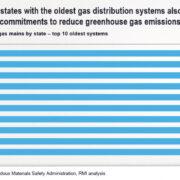In private homes, we learn yet of another world—of quiet angels with gentle hearts. Back home, they used to be teachers, bank tellers, office workers, engineers, or registered nurses who handle with special grace the dignity of their “clients’” last moments. They help not to torment these people with meaningless chemical assaults in their last days, when they could no longer be at a hospice. That precise moment to let go, for that last plunge, to let it fall easy and gentle. That is when the human art of caring, is when the caregiver is at her best.
Whether in high rise multi-story building, a cozy condo, or in any elegant sprawling California-style bungalow, stately mansions at Bel Air or Hancock Park where the caregiver is cocooned for five days or a whole week, she is aware of how eerily the outside world drops away. At home by the side of the “client,” she is intimate with the bleak environment that suddenly becomes her temporary domain. If she’s lucky, she could watch the ebb tide and flow of the respite of a TV, listen to the radio. Saddled with culture clash, she can help herself with those stupefying, awful food.
Within our complex system of long term care, women’s care giving is essential in providing a backbone of support. In fact, the value of informal care that women provide ranges from $306 million annually. Women provide the majority of informal care to spouses, parents, in law, friends and neighbors; and they play many roles while care giving such as health provider, care manager, friend, companion, surrogate decision maker and advocate.
Women are the major providers of long term care in this country, but they also have a long term care needs of their own. Women live longer than men, tend to outlive their spouses, and have less access to retirement savings such as pensions. In 2010, almost seven percent of all women were aged 75 or older. A common scenario is when an older woman who cares for her husband discovers that their few resources—financial or otherwise—are not enough to meet her own needs for assistance. So, who will take care of the caregivers?
But as the Greek philosopher Shades Seneca said, “Wherever there is a human being, there is opportunity for kindness.”
***
E-mail Mylah at [email protected]










